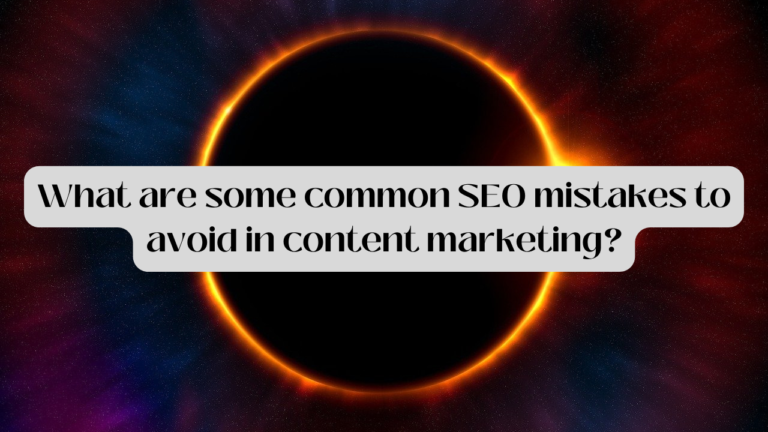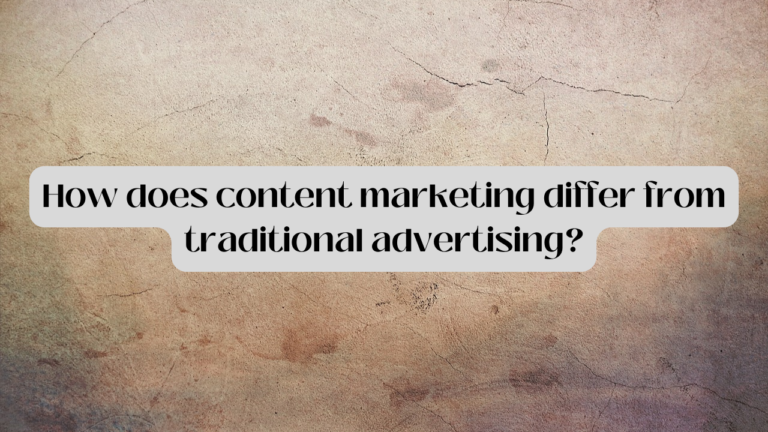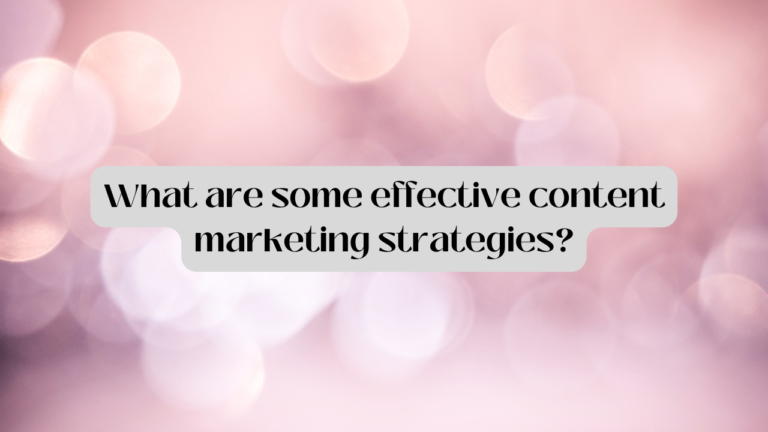What Is Content Marketing?
In an era where information overload is the norm, capturing and retaining the attention of your target audience has become an intricate challenge. Content marketing emerges as a strategic solution that not only cuts through the noise but also establishes a meaningful connection between businesses and their clientele. This comprehensive guide delves into the nuances of content marketing, its significance, strategies, and answers some frequently asked questions to equip researchers with a deeper understanding of this evolving field.
Table of Contents
- Defining Content Marketing
- Why Content Marketing Matters
- Key Elements of Content Marketing
- Content Marketing Strategies
- Measuring Content Marketing Success
- Frequently Asked Questions
Defining Content Marketing
Content marketing refers to the strategic practice of creating and distributing valuable, relevant, and consistent content to attract and engage a target audience. It aims to provide information, entertainment, or education that resonates with the audience’s interests and needs. Unlike traditional advertising, which is overtly promotional, content marketing focuses on building trust, credibility, and relationships by offering valuable insights without a direct sales pitch.
Why Content Marketing Matters
1. Audience-Centric Approach
Content marketing shifts the focus from the product to the audience. By delivering content that addresses the pain points, questions, and interests of the target audience, businesses can establish themselves as industry authorities and thought leaders.
2. Enhanced Brand Awareness
Consistent and high-quality content helps increase brand visibility and recognition. Through engaging and shareable content, businesses can extend their reach and tap into new segments of the market.
3. Builds Trust and Credibility
Valuable content demonstrates a business’s expertise and commitment to providing solutions. This builds trust with the audience, fostering long-term relationships and customer loyalty.
4. Boosts SEO and Organic Traffic
Search engines favor fresh, relevant content. By regularly publishing content that aligns with relevant keywords and user intent, businesses can improve their search engine rankings, leading to increased organic traffic.
5. Facilitates Lead Generation
Effective content marketing attracts potential customers by addressing their needs. This, in turn, converts visitors into leads, initiating the sales funnel.
6. Cost-Effective Strategy
Compared to traditional advertising, content marketing offers a more cost-effective way to engage and convert customers. While it requires an investment in time and resources, the long-term benefits outweigh the costs.
Key Elements of Content Marketing

- Target Audience: Define your ideal customer personas and tailor content to their preferences, needs, and behaviors.
- Quality Content: Craft content that is valuable, informative, entertaining, or educational. This can include blog posts, articles, videos, infographics, podcasts, and more.
- Consistency: Regularly publish content to maintain audience engagement and establish a reliable presence.
- Distribution Channels: Share your content through appropriate channels such as social media, email newsletters, websites, and industry-specific platforms.
- Storytelling: Narratives create an emotional connection. Use storytelling techniques to make your content relatable and memorable.
Content Marketing Strategies
- Blogging: Maintaining an insightful and up-to-date blog helps address specific pain points and showcase expertise.
- Social Media Marketing: Leverage platforms where your audience is most active. Share content, engage in conversations, and build a community.
- Video Content: Videos are highly engaging and shareable. Create tutorials, product demonstrations, or behind-the-scenes content.
- Email Marketing: Send targeted content to your subscribers, nurturing leads and fostering customer relationships.
- Infographics and Visual Content: Visuals simplify complex concepts and increase content shareability.
Measuring Content Marketing Success
- Traffic and Engagement: Monitor website traffic, page views, and time spent on your content.
- Conversion Rates: Track how many visitors are taking desired actions, such as signing up for newsletters or making purchases.
- Social Metrics: Measure likes, shares, comments, and follower growth on social media platforms.
- SEO Performance: Analyze your search engine rankings for relevant keywords and phrases.
- Lead Generation: Monitor the number of leads generated through content-driven interactions.
Frequently Asked Questions
Q1: Is content marketing only suitable for B2C businesses?
A1: No, content marketing is effective for both B2C and B2B businesses. It allows B2B companies to showcase expertise, educate potential clients, and build trust.
Q2: How often should I publish content?
A2: Consistency matters more than frequency. It’s better to maintain a steady publishing schedule rather than overwhelming your audience with too much content.
Q3: Can content marketing replace traditional advertising?
A3: Content marketing complements traditional advertising by providing value, building trust, and engaging audiences in a non-intrusive manner. It is not a direct replacement but a strategic addition.
Q4: How long does it take to see results from content marketing?
A4: Content marketing is a long-term strategy. Initial results may vary, but significant impact often requires several months to a year of consistent effort.
Q5: Is content marketing limited to written content?
A5: No, content marketing encompasses various formats, including written, visual, audio, and interactive content. The choice depends on your target audience and the message you want to convey.
In the ever-evolving landscape of digital marketing, content marketing stands as a pillar of engagement and connection. By understanding its principles, strategies, and impact, researchers can harness its power to drive businesses towards success in the digital age.
Conclusion
Content marketing is not just a trend; it’s a fundamental approach that enables businesses to authentically connect with their audiences. You can click here for more help. By delivering value through informative, entertaining, or educational content, businesses can build lasting relationships, establish authority, and foster brand loyalty. Embrace the art and science of content marketing, and watch as it transforms your approach to audience engagement and brand growth.



